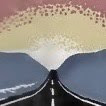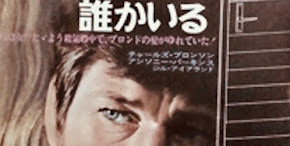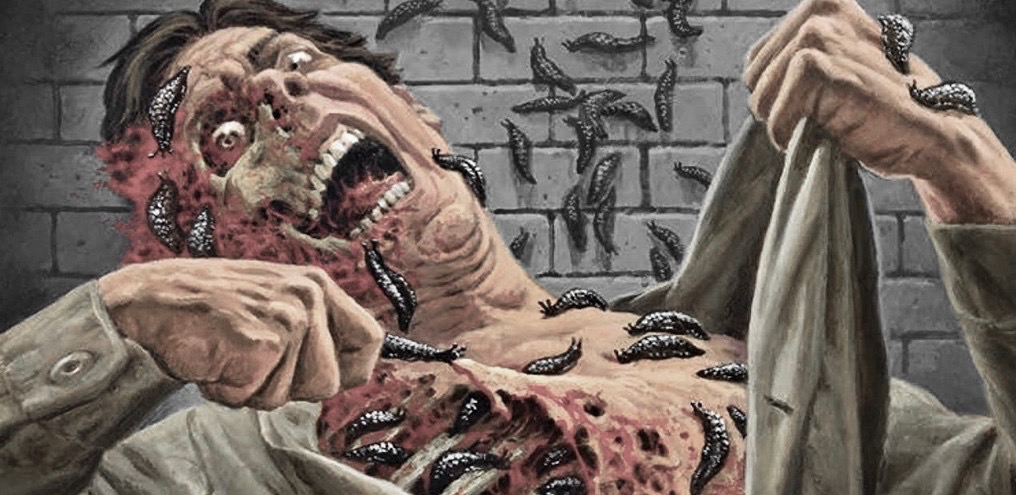 |
| Intentionally flowery artwork for LEAVE HER TO HEAVEN Year: 1945 |
Surprisingly enough, given the Cult Film Freak spotlights from the last two months, this isn't a Film Noir review centered on either Dana Andrews or Otto Preminger...
Although it
is connected to both the actor and director: a partial LAURA reunion with Gene Tierney in the leading role and Vincent Price given an initial cameo with a stormy 11th hour courtroom monologue: in her favor... But most important are two beautiful actresses that appeared in over three or more films with
Andrews: the first is LAURA ingenue Tierney, who (for the most part) began with him in John Ford's TOBACCO ROAD and would continue together in several other projects — as well as his other starlet, Jeanne Crain, as Gene's younger cousin who's more of an adopted sister.
 |
| Just Wilde about Tierney |
Both are smitten with ROAD HOUSE stud Cornel Wilde, the true lead and overall vulnerable, deer-caught-in-headlights protagonist. Tierney, usually prone to sweet and lovely, delicate types, breaks out with venomous finesse as the manipulative heavy — a rural, weaponless, surreptitious Femme Fatale! In a movie that's one of "modern day" ultra-violent guru Martin Scorsese's personal favorites, she takes the proverbial spiked baton and runs with it, but not without an even-keeled, monotone, slow-burn buildup.
 |
| Insert Poster |
"If you lived in Salem a hundred years ago," Cornel Wilde says to this mysterious woman, "they would have burned you." And this ironical compliment would alter its meaning by the film's near-conclusion — a blazing stake would be getting off easy...
 |
| Welcome to Camp Tierney... avoid the water sports |
For what Tierney eventually does, or lets be done, is beyond awful, and while it's somewhat impossible to not — at the very least — divulge a hint or two about the wretched act itself, her literally overboard action shouldn't be spoiled completely. It's a shock such a lovely lass would become so wicked. Although, in re-watching (recommended) LEAVE HER TO HEAVEN, derived from a Shakespeare line — within the first few minutes of an introductory conversation between Tierney's classy, brooding Big City to New Mexico rich girl, Ellen Berent, and the man she sets her narrowed eyes on, it's the subtle expressions that count...
First on a train on the way to where he's visiting and she lives (with his lawyer and her friend, played by a semi-narrating Ray Collins, in common) — look closely at not only the expressions but the haunted reactions and distractions on her porcelain-smooth face. Meanwhile, Cornel Wilde's Richard Harland, a smooth and successful author, is such a clean, naïve slate he's simply begging to be pushed to the limit. As usual in these kind of "Women Stalking Men" vehicles, the reality of how long it takes for the nice guy to start catching on almost becomes annoying, or at least, unrealistic — it seems intentional, though, since this is what yields the most palpable suspense...
 |
| A fitting image here |
It's an all-out tour-de-force performance by Tierney — playing a psychotic woman in a subtle fashion, going beneath the usual overboard stereotypes, which, having been made in 1945, decades before popular vehicles like PLAY MISTY FOR ME, THE BABYSITTER or FATAL ATTRACTION, any comparison is like saying CITIZEN KANE's time-shifting, non-linear approach borrowed from PULP FICTION: She's one of the first otherwise docile, good girl starlets to break from a sweet and predictable rhythm to portray a woman seething with an under-current of monstrous jealousy. And, as an adored and (seemingly) adoring wife instead of the usual jilted lover or one-night-stand, her "stalking" is far more intriguing, bizarre, and meaningful...
 |
| Tierney spreads dad's ashes in a melodramatic stride |
As for the other tall and beautiful actress: Jeanne Crain doesn't do much but look pretty. She was a lot busier with her and Gene's reoccurring co-star, Dana Andrews, in STATE FAIR — the biggest difference is, she's a tomboy here, and looks even better dressed-down. The most important factor is how different she is in style and tone than Tierney, who, as both are equally attractive, through Crain we're able to see what really pulls Wilde in — to making the wrong choice...
 |
| SCORE: **** |
For in this hellish HEAVEN, whether she's holding back or letting go — it's about Tierney, fully backed by a roaring, melodramatic soundtrack extenuating her character above and beyond the scene it represents — in particular, an unintentionally funny moment as she, stone-faced yet fervent, rides a horse (obviously in a studio) while spreading her father's ashes: And throughout, Tierney absorbs the two important factors differentiating this particular melodrama from the usual Film Noir template...
 |
| Vincent Price storms out to the storm outside |
Not without a touch of corny camp value, this visually postcard-perfect
Fancy Film Noir strays miles from the usual sparse B&W cinematography as every frame's splashed with rich, vibrant colors — a hybrid of a vintage fashion ad and a Norman Rockwell magazine cover: a delicate, dressed-up, intentionally borogue package harboring sinister contents...
In-place of the typical shadowy alleyways and sizzling neon motel rooms, the amount of time spent under bright sunlight, in either the desert or forest/wilderness, accentuates the plush and organic, soap operatic spender that, for a motion picture adapted from a novel and, after the starting credits, opens up with a book cover followed by sporadic chapter titles, LEAVE HER TO HEAVEN is a delicious and vicious, pulpy, page-turning experience.
 |
| Jeanne Crain eyes Cornel Wilde who's wild for Gene Tierney |

































































No comments:
Post a Comment
Note: Only a member of this blog may post a comment.